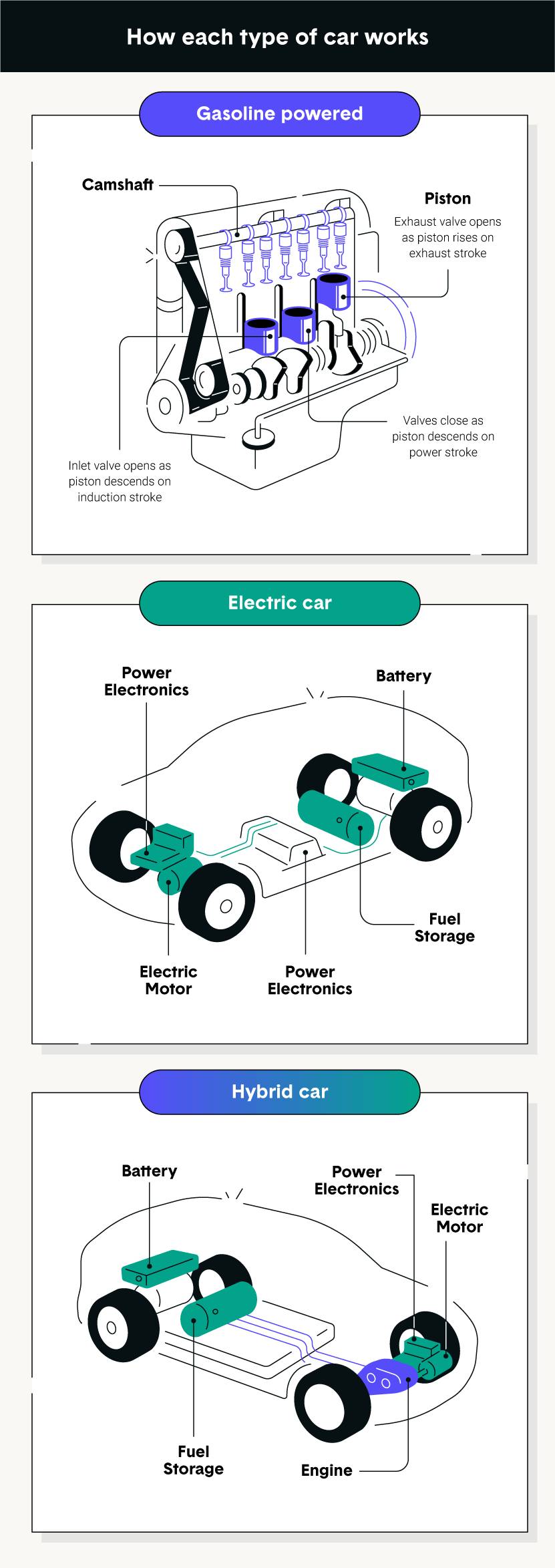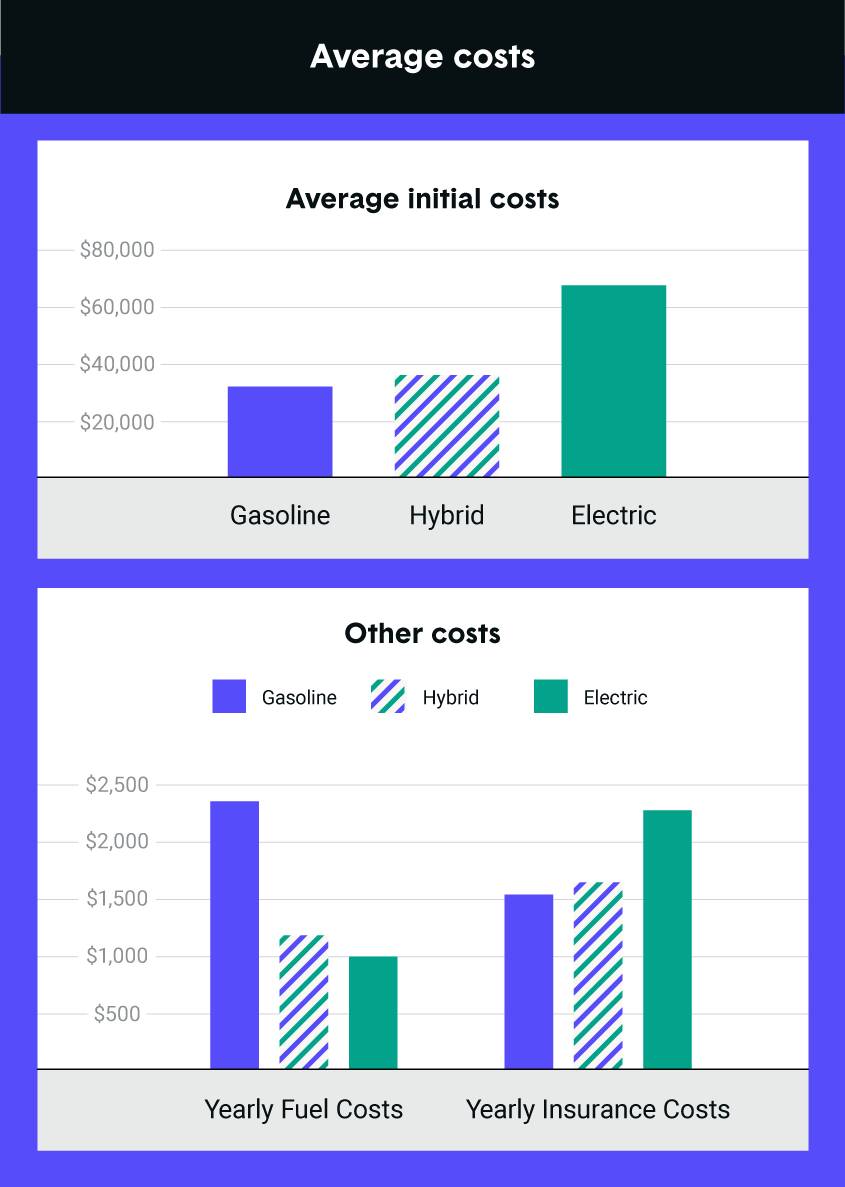Deciding which type of car is best for you
When determining whether you should purchase a gas, hybrid or electric car, consider the following factors.
1. Consider where — and how far — you’re driving
If you frequently travel long distances, an electric car may not be the best option since charging can be a hassle. Not only are charging stations hard to find in some areas, but it also takes longer than a gas fill-up and can add travel time to your trip. For longer distances, a hybrid or a gasoline-powered car might be a better choice to avoid range anxiety.
Because charging stations are rare in rural areas, a gasoline or hybrid car is probably a better option. In the city, however, an electric vehicle is a great option since you can easily charge it at home. A hybrid might make the most sense if you drive in both urban and rural areas.
2. Determine the model you want
Since electric cars haven’t been in production as long as gasoline or hybrid cars, fewer models are available. If you want a specific type of car like a pickup truck or a sports car, you’ll probably be limited to gasoline for now. However, Dodge recently announced that their electric muscle car, the Charger Daytona SRT, will be available in 2024, and the Ford F-150 Lightning is currently in production, so options are expanding.
3. Plan when you need your new car
If your car dies and you need a new one to get to work tomorrow, a gasoline car is probably all you’ll be able to find on such short notice (and even then, don’t count on being able to get the model you want).
Due to supply chain issues, increased demand and rising gasoline prices, hybrids have the lowest supply rates of the three types, making them difficult to find. Electric cars are also dealing with supply chain issues. Currently, Tesla’s Model Y has a four- to seven-month wait, and Ford’s new F-150 Lightning has a three-year wait, forcing Ford to stop taking reservations.16, 17





